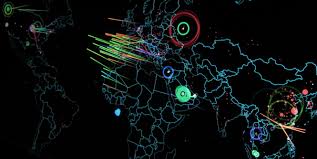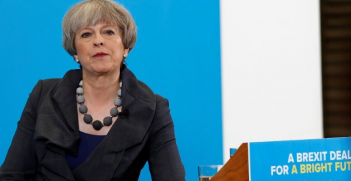China-US Cyber Agreements: Slovakia’s Secret for Australia

The United States has been focusing much of its cyber diplomacy around criticism of China’s espionage. Australia has been echoing similar messages, though more in private, at a respectful distance and without the same sense of moral outrage.
Last month, President Xi Jinping of China brilliantly out-manoeuvered both countries by agreeing with the United States, with all of the diplomatic and international legal authority that a head of state represents, that his government would not knowingly collect “commercial intelligence”. This was defined by the White House comment on the agreement as intelligence collected “with the intent of providing competitive advantages to companies or commercial sectors”.
For more than a decade, the National Counter Intelligence Executive of the United States has consistently charged China with being one of the main perpetrators of cyber espionage against it. In March 2013, the United States made unprecedented public demands on China when National Security Adviser Thomas Donilon declared that Beijing “should take serious steps to investigate and put a stop to… sophisticated, targeted theft of confidential business information and proprietary technologies through cyber intrusions emanating from China on an unprecedented scale”. The demands capped an escalating rhetorical campaign from senior Administration figures over the previous two years that this cyber espionage by China represented “the greatest transfer of wealth in human history”.
Some two and a half years later, after even more public demands and a renewed threat of sanctions from President Obama himself, Xi had said publicly, prior to the announcement of the agreement but during his visit to the United States, that China does not collect commercial intelligence and would not. He also went further by agreeing with his counterpart that the two countries could jointly pledge not to attack each other’s critical infrastructure in cyber space. Russia and China signed a similar agreement on infrastructure (“information resources”) earlier this year.
The moves by China have created a mountain of commentary, quite rightly dissecting definitions, legalisms and issues of verification. In spite of major weaknesses in what these commitments might actually represent, Xi’s statements and commitments have elevated the cyber espionage issue to new heights of normative behavior in the bilateral relationship.
Yet the U.S. diplomatic focus on commercial espionage has been undermined by critical evaluations of the supposed economic impacts on U.S. competitiveness. Among the sceptics and critics, we can cite a former British SIS officer (Nigel Inkster, now at IISS) and two leading U.S.-based scholars (Tai Ming Cheung and Jon Lindsay), all published in the 2015 book, China and Cyber Security (OUP). I had made a similar length analysis prior to the release of the book, based in part on research for my own book, Cyber Policy in China (Polity 2014) and previous experience for 15 years as an intelligence analyst. This argument about the weakness of the US claims has received wide international coverage in the Boston Globe, Handelsblatt (Germany), The Jakarta Post, Huffington Post, and several other prominent online magazines, not to mention the prestigious journal from MIT, International Security.
The U.S. policy focus on China’s cyber espionage has also been undermined by the Administration’s failure to draw sensible connections between its inflammatory rhetoric on cyber espionage and its more measured efforts to curb intellectual property theft in general, laid out extensively and convincingly in a 2013 White House strategy document, Administration Strategy on Mitigating the Theft of U.S. Trade secrets. In fact, the web of international agreements already obliging China to punish the conversion of trade secrets obtained by any means to the commercial benefit of its corporations is already massive, not least under the WTO. The challenge has been to enforce compliance, as documented in the latest U.S. report on China’s compliance with WTO obligations (December 2014), including IPR protection. Xi’s commitment to prevent conversion of trade secret theft to the commercial advantage of Chinese companies is one that China first made two decades ago.
What should countries like Australia take from this? We can applaud the new level of commitment by both China and the United States to normative behaviors in cyber space. We can continue to promote vigilance by our corporations in protecting their commercial secrets from cyber espionage and other forms of theft. But we also have to smell the salts and wake up.
The biggest cyber event in Xi’s visit to the United States was not the diplomatic tango between the two heads of state over espionage. It was the line dance at the hoedown in Seattle, where representatives of the world’s leading high technology firms met the Chinese President in private, among a guest list of 30 American and Chinese business leaders. This is not only the past and the future of the bilateral cyber relationship, it also constitutes the absolutely overwhelming weight of the technology transfer relationship between the two countries. Cyber espionage is not the main game in economic competitiveness.
This is evidenced from an unlikely source. The most substantial scholarly effort to address the scale of China’s exploitation of U.S. technology is probably a 2013 study, titled Chinese Industrial Espionage. Yet seven of its ten chapters address what are largely lawful methods of technology transfer, such as use of open sources, student exchange programs, joint ventures and licensing.
It is on such lawful technology transfer where Australia should be concentrating much more of its efforts in cyber diplomacy with China – to promote Australian domestic innovation. Slovakia has a lesson for us. It has a diplomatic post assigned to this mission, in its Ambassador at Large for Science and Innovation. We could also take a leaf from a non-governmental effort called the European Ambassadors for Creativity and Innovation and their Manifesto, an effort by civil society (mostly academics) to achieve even more ambitious goals.
If Prime Minister Malcolm Turnbull is serious about making Australia a more clever country, committed to innovation, then he might look to rebalance the priorities of Australia’s cyber diplomacy and update the mission of our Department of Foreign Affairs and Trade accordingly to give “pride of place” to science and innovation as a national security issue, as Slovakia has done.
Greg Austin is a Professorial Fellow at the EastWest Institute in New York and Visiting Professor in the Australian Cyber Security Centre at the University of New South Wales Canberra. Since 2000, he has worked in Europe in other leading NGOs or think tanks, such as the International Crisis Group and the Foreign Policy Centre (London). Prior to 1999, he held research and teaching posts in the Australian National University and various Australian government assignments, including roles as a Ministerial adviser, a diplomat and an intelligence analyst. He is the author or editor of six books on Asian security, concentrating most heavily on China. He has a PhD and a Master of International Law from ANU. This article can be republished with attribution under a Creative Commons Licence.





